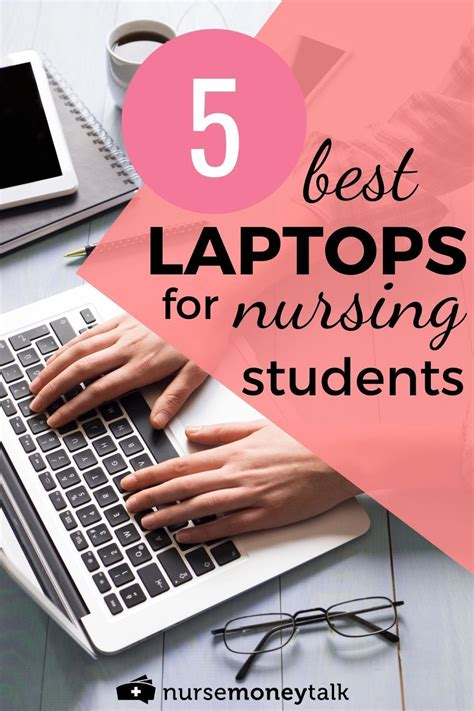Introduction

With the rapid advancements in healthcare technology, nursing students now require laptops that can seamlessly integrate with the demanding academic and clinical requirements of their programs. Whether it’s accessing electronic health records (EHRs), completing online assignments, or conducting research, a reliable laptop is an indispensable tool for nursing students. This comprehensive guide delves into the key considerations, features, and recommendations for choosing the best laptops for nursing students.
Key Considerations for Nursing Laptops
Nursing students have unique laptop needs tailored to their specific academic and clinical demands. Here are some essential factors to take into account:
- Processing Power: High-powered processors are crucial for running complex software applications, such as EHRs and statistical analysis programs.
- Memory (RAM): Ample RAM ensures that multiple applications can run smoothly without lag, allowing students to multitask efficiently.
- Storage Capacity: Nursing programs involve handling voluminous documents, medical records, and research papers. Look for laptops with generous storage capacity.
- Battery Life: Long battery life is essential for extended hours of study and clinical rotations, where power outlets may not always be readily available.
- Portability: Laptops should be lightweight and easily portable, allowing students to conveniently carry them to class, clinical sites, and the library.
- Display Quality: A high-resolution screen with good color accuracy is important for reviewing medical images, such as X-rays and CT scans.
- Keyboard and Touchpad: Comfortable and responsive keyboards and touchpads enhance productivity and reduce strain during extended typing sessions.
- Connectivity Options: Reliable Wi-Fi and Bluetooth connectivity are essential for accessing online resources, communicating with instructors, and connecting medical devices.
Recommended Laptops for Nursing Students
Based on the key considerations outlined above, here are some of the top-rated laptops recommended for nursing students:
- Apple MacBook Air M2: With its powerful M2 chip, 8GB of RAM, and long battery life, the MacBook Air M2 provides an exceptional balance of performance and portability.
- Microsoft Surface Laptop Studio: This versatile 2-in-1 laptop features a 120Hz display, a powerful Intel Core i5 processor, and a unique studio mode for enhanced productivity.
- Dell XPS 13 Plus: Known for its sleek design and impressive performance, the XPS 13 Plus boasts a 13.4-inch OLED display, 16GB of RAM, and a long-lasting battery.
- HP Spectre x360 13.5: This convertible laptop offers a premium experience with its 13.5-inch OLED display, 360-degree hinge, and powerful Intel Evo platform.
- Lenovo ThinkPad X1 Carbon Gen 10: Designed for durability and reliability, the ThinkPad X1 Carbon Gen 10 features a carbon fiber chassis, a fast Intel Core i7 processor, and a vivid WQXGA display.
Benefits of Good Laptops for Nursing Students
Investing in a high-quality laptop for nursing school provides numerous benefits, including:
- Improved Academic Performance: Powerful laptops enable students to run complex software, access online resources, and complete assignments efficiently.
- Enhanced Clinical Skills: Laptops facilitate access to EHRs, medication administration systems, and clinical decision support tools during clinical rotations.
- Increased Productivity: Streamlined workflows and efficient multi-tasking on laptops save time and reduce stress.
- Optimized Connectivity: Reliable wireless connectivity allows students to stay connected with instructors, classmates, and healthcare professionals.
- Future Career Success: Familiarity with technology in nursing school equips students with the skills they need to thrive in a tech-driven healthcare environment.
Why a Good Laptop Matters
Choosing a suitable laptop for nursing school is not merely an academic decision but a strategic investment in the success of future healthcare professionals. Here’s why:
- Demand for Tech-Savvy Nurses: Healthcare organizations increasingly rely on technology to improve patient outcomes, and nurses who are skilled in using technology are highly sought after.
- Enhanced Patient Care: Nurses with access to laptops can provide better care by accessing relevant patient information, using clinical decision support tools, and communicating with other healthcare professionals.
- Improved Collaboration: Laptops facilitate collaboration among nursing students and professionals, enabling them to share information, discuss cases, and provide support.
- Lifelong Learning: Laptops empower nurses to continue their education and stay updated with the latest advancements in healthcare technology.
FAQs for Nursing Laptop Selection
- How much should I spend on a nursing laptop? The price range for good nursing laptops typically falls between $800 to $2,000, depending on features and specifications.
- What is the optimal screen size for a nursing laptop? A screen size of 13 to 15 inches provides a good balance between portability and screen real estate.
- Do I need a 2-in-1 laptop? 2-in-1 laptops offer versatility and functionality, but they may be more expensive than traditional laptops.
- What operating system should I choose? Both macOS and Windows offer reliable options for nursing laptops. Consider personal preferences and the software applications you need.
- Is a touchscreen laptop necessary? Touchscreens can provide convenience and enhance usability, but they may not be essential for all nursing students.
- How important is battery life? Long battery life is crucial for extended hours of use during clinical rotations or power outages.
- What type of warranty should I look for? A manufacturer’s warranty of at least one year is recommended to protect your investment.
- Where can I find reviews and recommendations for nursing laptops? Check reputable tech websites, nursing forums, and ask for advice from current nursing students or professionals.
